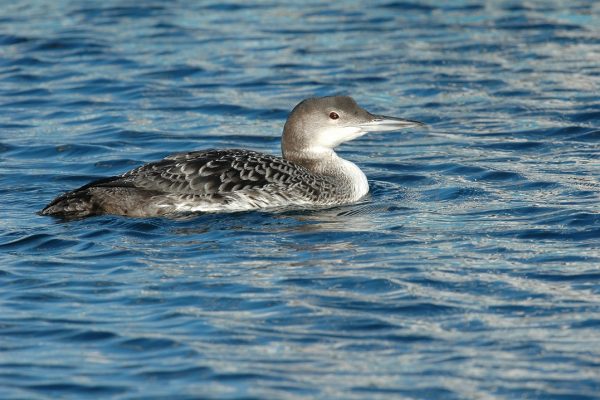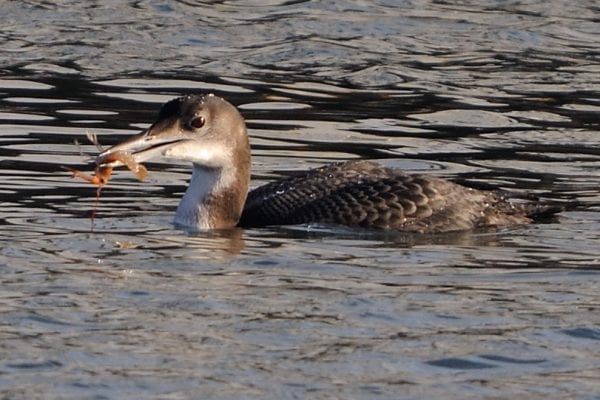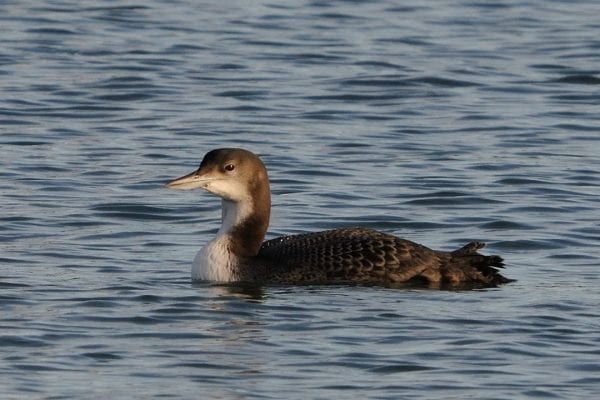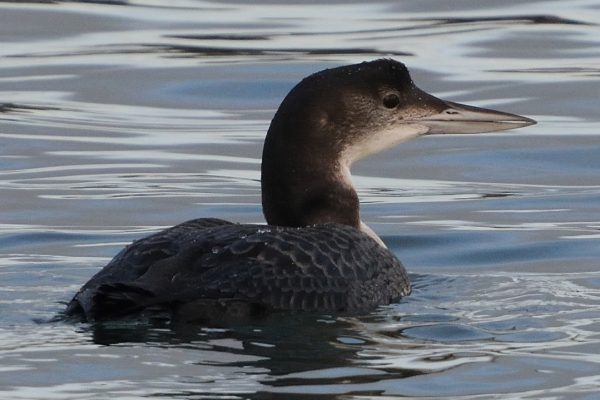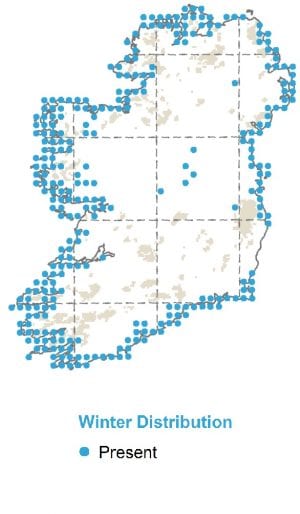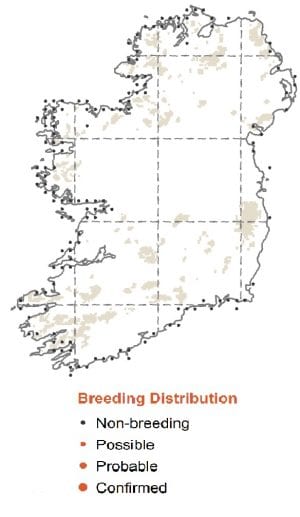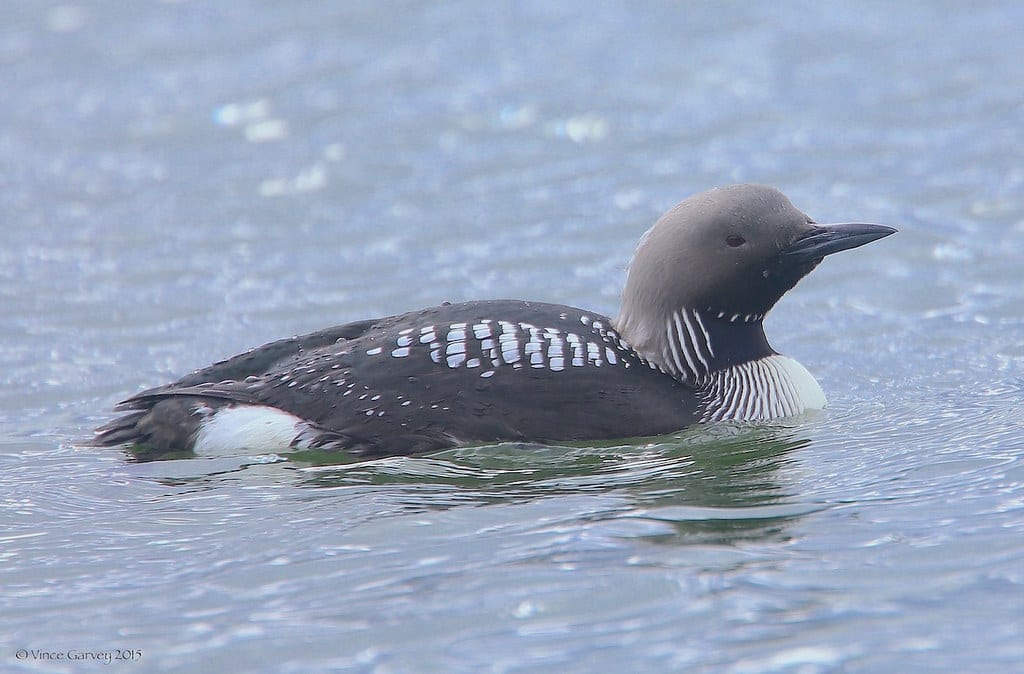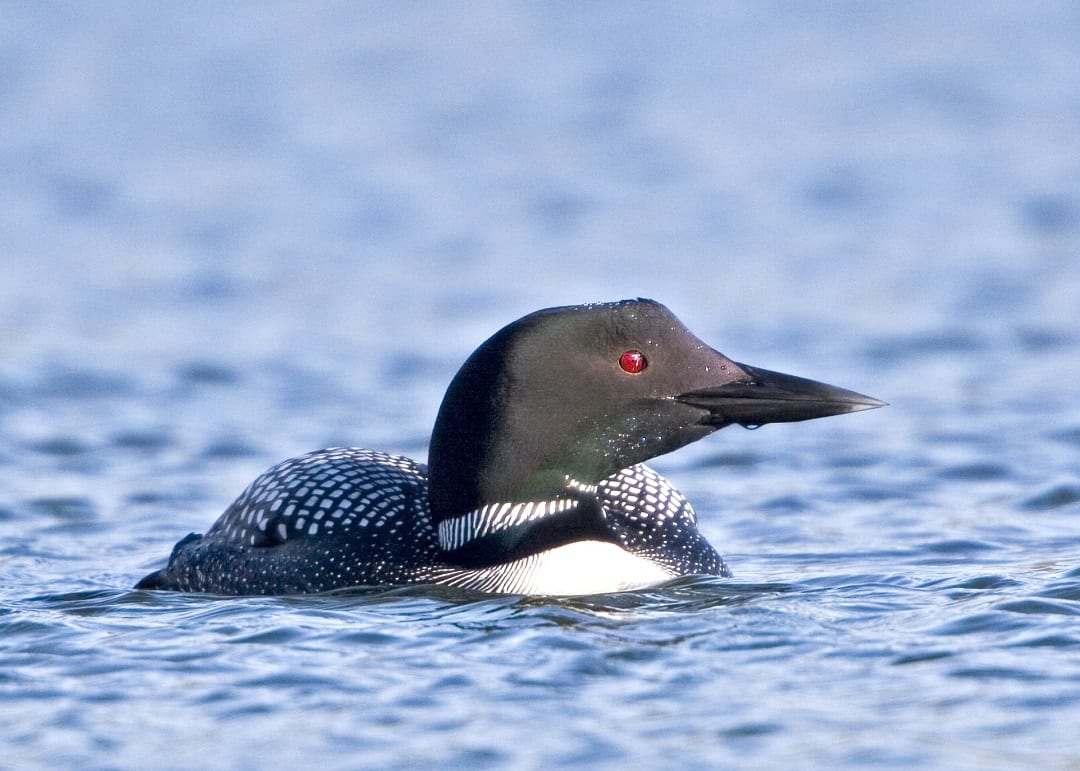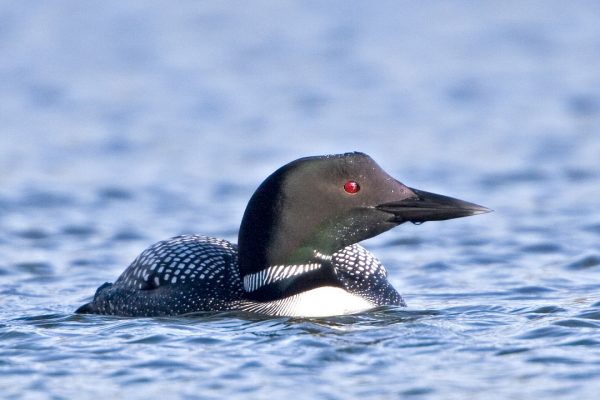
Great Northern Diver
| Irish Name: | Lóma mór |
| Scientific name: | Gavia immer |
| Bird Family: | Divers |
amber
Conservation status
Conservation status
Status
A widespread winter visitor to coastal areas from September to April.
Identification
Great Northern Divers are large and powerfully built. The heavy, spear-like bill is held in a horizontal position when birds are on the water. The head is large with a steep forehead and a crown that is usually flat; but can be raised forming a bump- like crown. During the winter the bill is grey with a dark tip and birds have a prominent pale eye-ring and a dark half-collar on the lower neck. In summer the head and bill darken becoming black and the upper body plumage takes on the distinctive black and white chequered and spotted pattern
Voice
Mainly silent over winter, contact call is a loud moaning sound rising slightly
Diet
Mostly fish but also feeds on crustaceans, molluscs, annelids, insects and amphibians.
Breeding
Great Northern Divers do not breed in Ireland. The closest breeding birds are in Iceland and the breeding distribution spreads east through Greenland to North America.
Wintering
Great Northern Divers occur along the Irish coastline between September and April and are usually observed as single birds or small groups. They are the most numerous of the divers occurring in Ireland and are particularly abundant off the south, west and northwest coasts over the winter. Great Northern Divers occur along a variety of coastlines, particularly deeper bays and inlets, as well as shallow bays with sandy shores. They can forage up to 10 km offshore and numbers close to shore tend to be highest when winds blow onshore.

